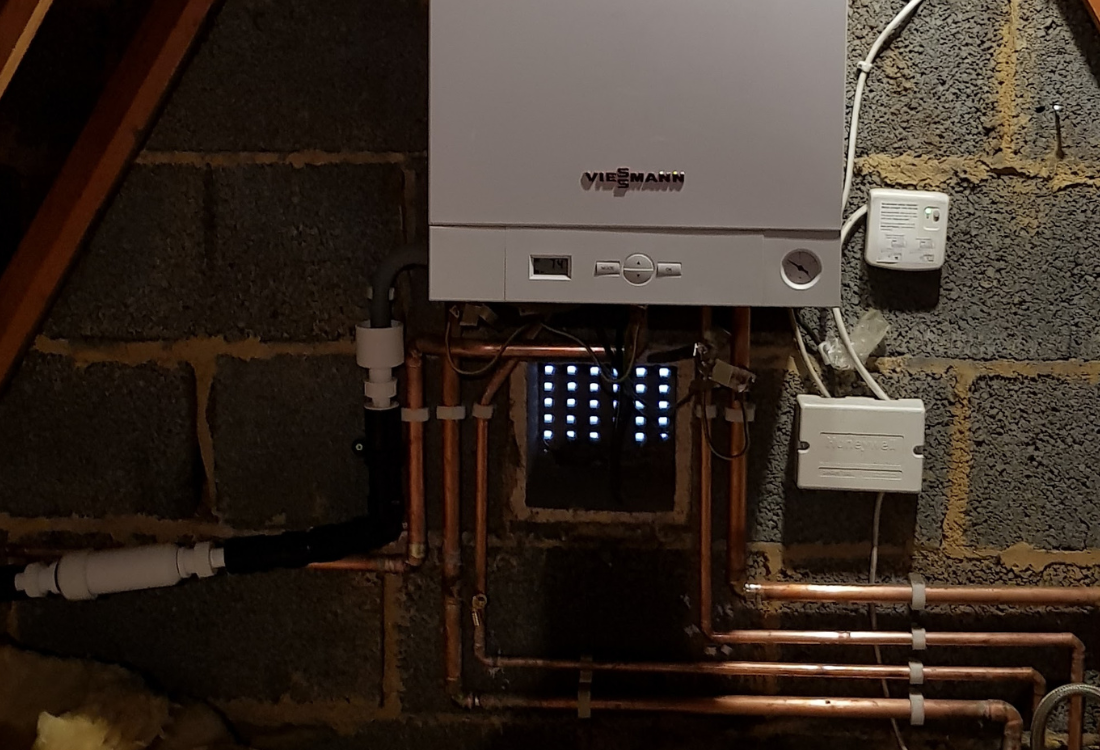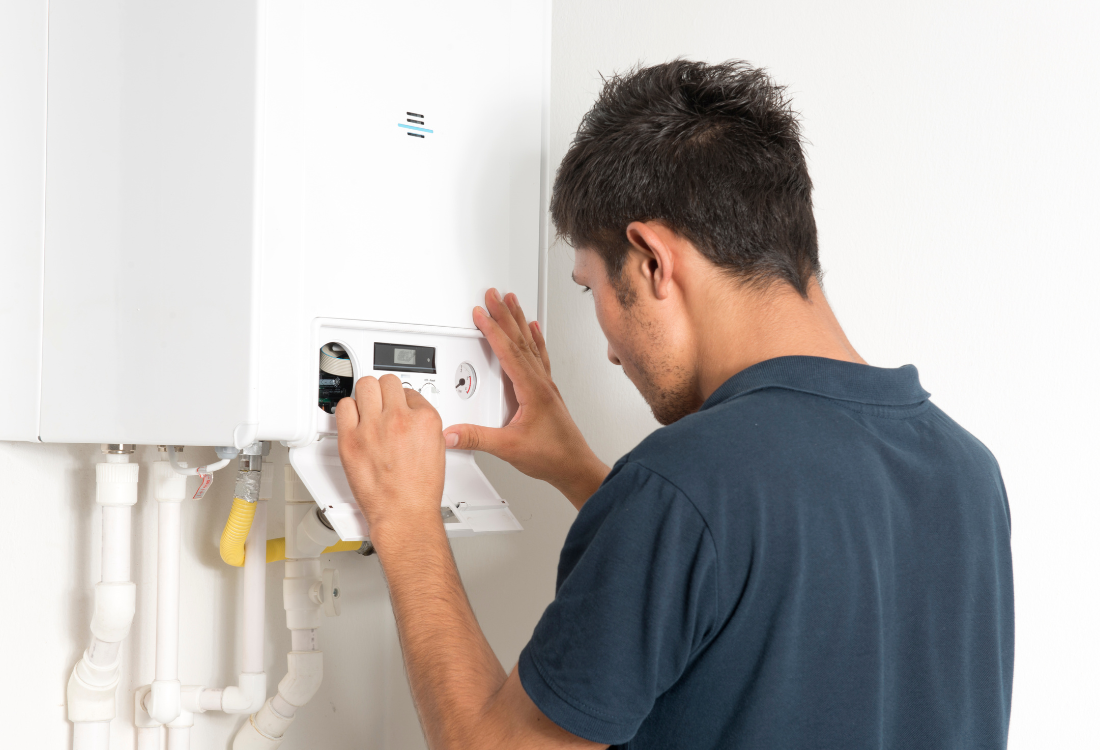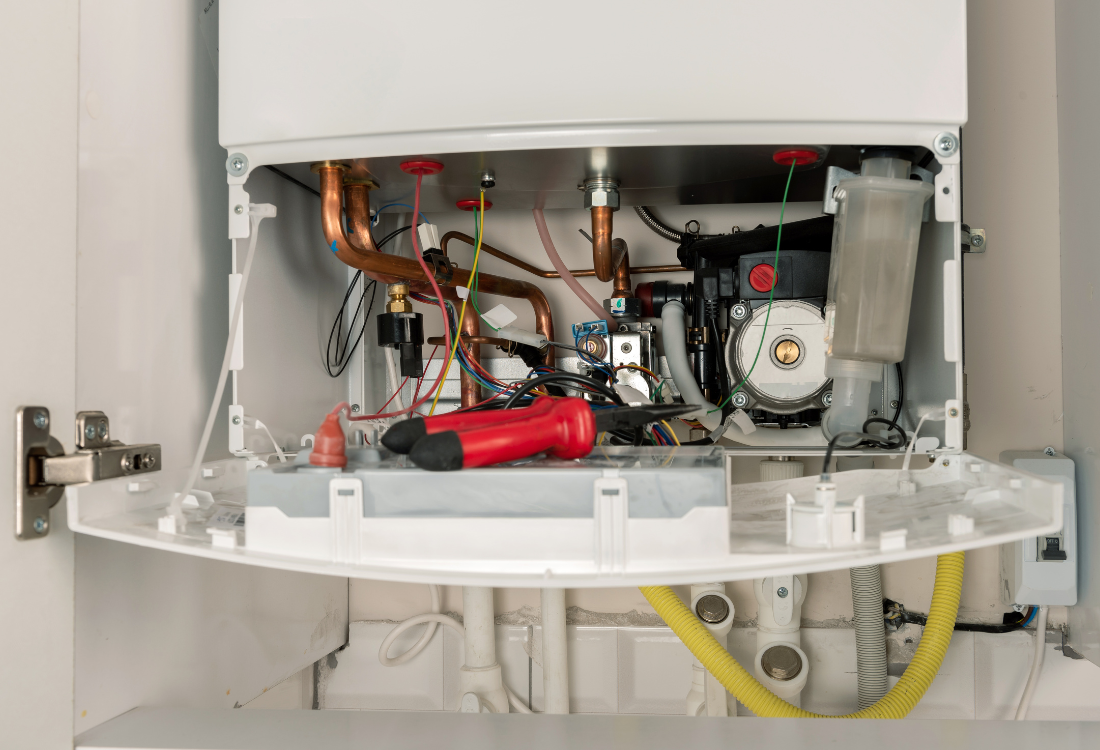Not sure whether you need a plumber or a heating engineer? Is it possible for one person to be both?
This article looks at the difference between plumber and heating engineers so you know who to call.
Difference Between Plumber And Heating Engineer
You might find plumbers and heating engineers working together, and you might find a plumber who is also a qualified heating engineer and vice versa, but the short answer is no! Plumbers and heating engineers are not the same thing. Plumbers are experts in water systems. These include pipes, sinks, toilets, and drains. Heating engineers are specialists in heating systems. These include boilers and combi-boilers, radiators, central heating and boiler service.
Why Do Plumbers Get Confused For Heating Engineers?
There are many overlaps between the tools that plumbers and heating engineers use. This is because, like plumbers, heating engineers also deal with water pipes and systems. For example, when a qualified heating engineer installs a boiler, they will also install the necessary water pipe system. Furthermore, many boiler problems look a lot like water-pipe problems. For instance, boilers can develop leaks, and pipes might need replacing or insulating for the winter. This causes many people to say “I’m going to call the plumber,” when they’re referring to a heating engineer.
What Qualifications Do Plumbers Need?
Many plumbers are extremely highly skilled. However, plumbers do not need any formal qualifications to operate. Many colleges offer diploma courses, and apprenticeships are available, but anyone can call themselves a plumber and start working immediately. This is because the job is relatively safe. Poor plumbing can cause an expensive mess, but it is unlikely to be a risk to life. As such, it is illegal for a plumber to install a heating system.
What Qualifications Do Heating Engineers Need?
There are three necessary qualifications for heating engineers. These are:
-
Gas Safe Register Certification
-
Accredited Certification Scheme (ACS) Qualification
-
NVQ or SVQ in Plumbing and Heating
Importantly, these must be up-to-date. You can check that your engineer has the required Gas Safe certification by asking to see their ID card, or by checking the Gas Safe Register. ACS Qualifications are updated every time there is new legislation, so check with your local authority if you are not sure.
How Do I Know If I Need A Plumber Or A Heating Engineer?
If you’ve got a very obvious leak from something like a toilet, it’s clear that you need a plumber. However, if you’ve got water dripping from your heating system, or you have a mystery leak, you need a heating engineer. Heating systems are the most complex and extensive water systems inside homes, so nearly all unexpected drips, drops, pressure changes, and hot-and-cold water problems require a qualified boiler and heating engineer.
Call Us For Your Boiler Service
To ensure that your boiler service is carried out by someone with the right skills and qualifications, or to guarantee a safe solution to mystery water problems in your home, give Trusted Boilers a call today on 0208 088 9899.
Subscribe to our blog
You May Also Like
These Related Stories

Can A Combi Boiler Be Installed In The Loft?

A Homeowner’s Quick Guide To Common Faults With Ideal Logic Boilers



